On Thursday (August 13), U.S. President Donald Trump made a surprise announcement via his favourite Twitter – the United Arab Emirates (UAE) and Israel agreed to establish normal diplomatic relations. Essentially, the UAE will officially recognise the state of Israel. In exchange, Israel will suspend its plans to annex parts of the occupied West Bank of Palestine.
The deal – “Abraham Agreement” – makes the UAE the first Gulf Arab state – and the third Arab country after Egypt (in 1979) and Jordan (in 1994) – to have full diplomatic ties with Israel since the country’s declaration of independence in 1948. Indeed, it’s a huge victory for Israel, even though both UAE and Israel have been enjoying years of close relationship behind the scene.
The agreement is also a foreign policy win for the U.S. president, who is behind Democratic presidential nominee Joe Biden in poll numbers ahead of November’s election. Architecting so-called peace deals in the Middle East is one of Trump’s signature foreign-policy, even though Palestine has rarely been consulted. Trump’s friend is not the Palestinians, but the Israelis.
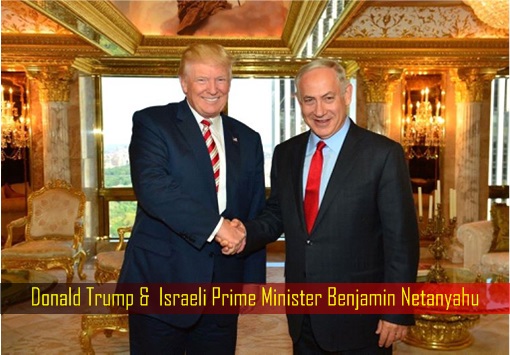
From the moment he received celebrity welcome in Saudi Arabia in his first foreign trip as the POTUS to withdrawing from the Iran nuclear deal, Donald Trump’s divide-and-rule strategy has been to isolate Iran and to remind the Sunni Muslim Arabs who the real enemy is. The U.S. president has done a great job by sending a message that the Arabs have to choose between Iran and the U.S.
If the Sunni-Muslims led by Saudi want the U.S.’ protection from the evil Shia-Muslims led by Iran, then they have to also accept Israel, despite the decades-old Israeli-Palestinian conflict. The “US-Israel” combo value meal comes in the package. They can take it or leave it. So when the United States Embassy officially relocated to Jerusalem on May 14, 2018, Saudi and its allies could do nothing.
The Palestinians, shocked and horrified after Trump unveiled the latest stunning deal, have rejected the UAE-Israel agreement. Palestinians leaders, including terror groups Hamas and Islamic Jihad, called the deal a “stab in the back”. Now, instead of a so-called dependable Arab Muslim brothers, the Palestinians suddenly feel being betrayed by the UAE.
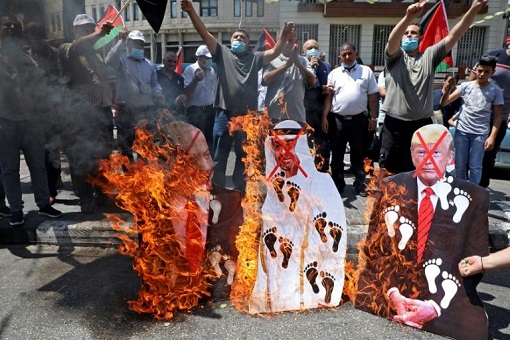
Although Abu Dhabi’s Crown Prince Mohammed Bin Zayed said the agreement “was to stop further Israeli annexation”, Palestinians were not convinced. Ahmed Majdalani, the Palestinians Authority’s (PA) minister of social affairs, said – “The UAE is trying to deceive and mislead the public by repackaging this shameful agreement as a service to the Palestinians.”
The Palestinian Authority also recalled its ambassador to the UAE in protest over the agreement. Angry Palestinians were seen busy burning cutouts depicting US President Donald Trump, Abu Dhabi Crown Prince Mohammed bin Zayed and Israeli Prime Minister Benjamin Netanyahu during protests. But that’s all they could do.
Joining the condemnation was Turkey, who said – “While betraying the Palestinian cause to serve its narrow interests, the UAE is trying to present this as a kind of act of self-sacrifice for Palestine.” Likewise, Iran said – “This is an act of strategic stupidity from Abu Dhabi and Tel Aviv, which will undoubtedly strengthen the resistance axis in the region.”
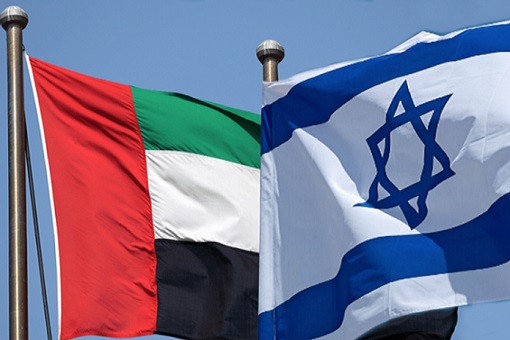
However, Bahrain praised the normalisation of ties between Israel and the UAE. Oman, on the other hand, has welcomed the agreement. Egyptian President Abdel Fatah al-Sisi praised the deal. Jordan said the deal could help to push forward peace negotiations. Germany, United Kingdom, France and Spain all welcomed and praised the “historic” deal.
What about the elephant in the room – Saudi Arabia? The kingdom, and the Arab League for that matter, is as quiet as a church mouse. The fact that the Custodian of the Two Holy Mosques remained silent so far speaks volumes about its “blessing” for the Israel-UAE deal. It’s worth noting that UAE, Bahrain and Egypt are close allies of Saudi Arabia.
Clearly, the biggest winner is Israel. That’s because there was no way the Israel-UAE deal could proceed smoothly without some sort of approval from Saudi. As de-facto leader of Sunni-Muslims, it is Saudi Arabia – not the UAE – who traditionally speaks on behalf of the Muslim world. Therefore, Saudi’s silence is as good as a “recognition” of Israel in the deal.
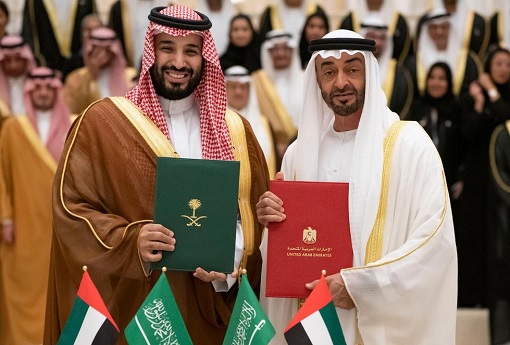
Constrained by the 2002 Arab Peace Initiative, which offered Israel full Arab recognition in exchange for its withdrawal from Arab lands captured in the 1967 war, Saudi’s silence is to test the water, deliberately designed to see the reactions of the Arab world. If there are no serious retaliations or rejections, Crown Prince Mohammed bin Salman could join the bandwagon.
It’s public knowledge that the Saudi Crown Prince Mohammed had secretly visited Tel Aviv in September, 2017 to discuss with Israeli top officials the idea of pushing forward regional peace in the region. Hence, for years, the majority of the Gulf States are prepared for open diplomatic relations with Israel because they feel they are threatened by Iran, and not by Israel.
True, UAE’s recognition of Israel is a violation of the 2002 Arab Peace Initiative. But after more than 70 years since the Israeli-Palestinian conflict started in 1948, there has been no solution. With the low oil price and its foolish intervention in the Yemeni Civil War that began in 2015, Saudi and its allies have little choice but to take care of their own backyard instead of the Palestinians.
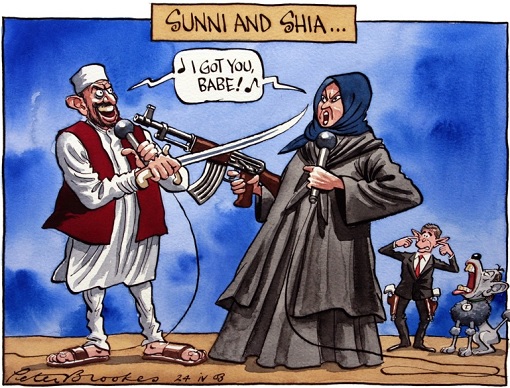
No matter how one analyses the latest bombshell, Iran is the primary factor why the Arabs in the region applaud the Israel-UAE diplomatic deal. They had seen former President Barack Obama’s Iran nuclear deal and they saw President Donald Trump junked the Iran deal. With Trump’s presidency coming to a probable end, a new friend – Israel – could provide leverage against Iran.
Regardless whether Trump is re-elected or not, a formal diplomatic relation would allow Israel and the Sunni-Muslims in the region to better prepare themselves for the eventuality of a U.S. retreat from the region. After all, there’s no way that the Arab League could drive Israel out of the region so the best way forward is to work together against a common enemy – Iran.
More specifically, the UAE could benefit from the “Abraham Agreement” in many ways. For a start, a formalized bilateral cooperation in sectors such as energy, tourism, direct flights, medicine, technology, and military industry will certainly benefit the Gulf state. In recent months, the UAE was granted access to Israeli research into a vaccine and treatment for Covid-19.
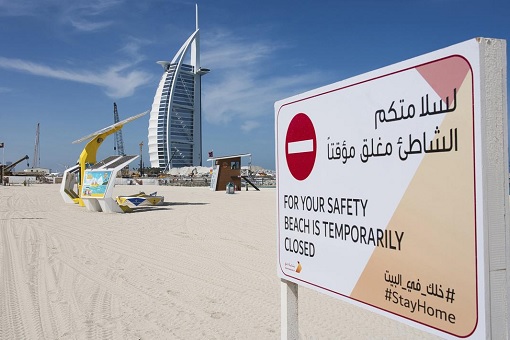
In actual fact, business relations between the UAE and Israel started more than 20 years ago. Since the 9/11 (September 11) terror attacks in 2001, the UAE has been relying on Israel for computer surveillance and cyber-security software to protect its status as the Middle East’s premier financial centre. After the latest diplomatic deal, the UAE could become a regional power broker.
Make no mistake. Mr Netanyahu said he had only “delayed” West Bank annexation plans, but those plans remain “on the table”. He said – “There is no change in my plan to apply our sovereignty to Judea and Samaria (West Bank) in full co-ordination with the US. I’m committed to it. That hasn’t changed. This issue remains on the table.”
In truth, the annexation of West Bank was easier said than done. Mr Netanyahu would not dare do it without an approval from Washington. The Arabs blinked in the poker game. But even if they knew Israel was bluffing, they had to pretend and still go ahead with the normalisation because they desperately needed Israel, arguably the U.S.’ closest ally and the most powerful country in the region.
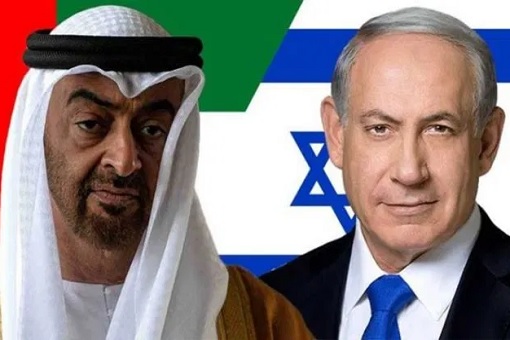
Perhaps critics of the deal, like Turkish President Recep Tayyip Erdogan and Malaysian former Prime Minister Mahathir Mohamad, should realize that both Israel and the UAE have the right to establish a full diplomatic relations as it was their internal affairs. Nevertheless, this could be the first step towards recognition of Israel by more Arab nations in the Middle East.
Other Articles That May Interest You …
- Disgraced Hishammuddin Lied – Too Afraid To Defend Country’s Sovereignty Against China’s Intrusion
- Obsolete Mahathir – Palestinians Started International Terrorism Since The Arabs Lost The “Six-Day War”
- Banning Israel – This Confused Sports Minister With A Pretty Face Should Wake Up & Stop Hallucinating
- PLO Office Closed – Trump Gets Tough With Stubborn Palestinians For Poking Strategic Ally Israel
- Trump Cuts Funding – Palestine Losses $230 Million Aid Used To “Encourage Terrorism”
- What The Arabs Don’t Want You To Know – How Israel Secretly Saved Egypt From ISIS
- Recognition Of Jerusalem – Why Muslims Should Wake Up & Stop Hallucinating
- A Celebrity Welcome – Saudi Prepares Red-Carpet For Anti-Muslim Trump

|
|
August 16th, 2020 by financetwitter
|


|

|

|

|

|

|




























Comments
Add your comment now.
Leave a Reply